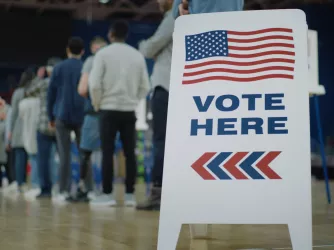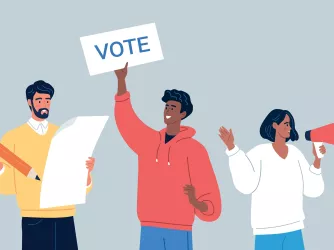Table of Contents
University of Oklahoma defends diversity training requiring agreement with university-approved viewpoints but signals willingness to reconsider

FIRE was concerned that OU students, faculty, and staff were being compelled to express agreement with university-approved viewpoints about diversity and inclusion.(Ken Wolter / Shutterstock.com)
On Thursday, FIRE wrote about the University of Oklahoma’s mandatory online diversity training programs for students, faculty, and staff, focusing on how the faculty and staff module required participants not simply to learn about OU’s preferred viewpoints but to actually express agreement with them. FIRE wrote to OU about this on Nov. 16 of last year, after a graduate student who had been required to take both training courses alerted us to the situation.
FIRE didn’t receive any response from OU in the ensuing months, but that didn’t mean we weren’t trying to learn more about what was happening. Ten days prior to our November letter, FIRE issued a state open records request to OU requesting copies of its diversity, equity, and inclusion training materials as of Oct. 25, 2020. As we noted in Thursday’s article, we finally received a response to that request late last month, when OU told us that because of supposed copyright concerns, the only way we could be allowed to see the materials was “on the Norman campus during regular business hours.”
As you may imagine, this invitation to unnecessarily fly across the country amidst a pandemic did not strike us as a particularly sincere response to our request.
A marked lack of enthusiasm for transparency from public universities is hardly a surprise. We were surprised, however, to receive an email yesterday afternoon from OU’s media relations office requesting a “correction” to our article and asking us to notify them when it was made:
I am writing to ask you to please update your article, University of Oklahoma diversity training requires students, faculty to agree with university-approved viewpoints, with the acknowledgment [sic] that a response was received on behalf of the University of Oklahoma and Dr. Hyppolite by email (see below) and by mail.
“Below” was what appears to be a forwarded email dated Dec. 4, 2020, and an attached PDF of a letter dated Dec. 2, 2020, responding to our Nov. 16 letter (though not our open records request). We have double-checked and are unable to find a record of receiving such a letter either by mail or by email.
That doesn’t make it impossible that it was sent and FIRE didn’t get it; the U.S. Mail has been spotty through much of the COVID era, and the forwarded emails “From:” line reads “Hicks, Pamela D. On Behalf Of diversity.inclusion.@ou.edu.” That would have two red flags for spam filters: the “on behalf of” that marks email delegation (which is often misused to spoof emails), and the weirdly-formatted email address diversity.inclusion.@ou.edu, which has a hard-to-notice period right after the word “inclusion.” It may not even be a real email address, as the one found on OU’s diversity and inclusion webpage is diversity.inclusion@ou.edu (it has no period after the word inclusion, which is much more in keeping with email address norms). Regardless, FIRE can’t issue the requested correction saying OU’s response was received by FIRE before yesterday because—so far as we can tell—it wasn’t.
(And to answer the inevitable questions from our more technically-minded readers: The file properties of the PDF OU sent us yesterday contained no substantial metadata, but the filename itself, 202104091225.pdf, looks like a common date-based filename produced by a scanner. This suggests it was scanned at 12:25pm on April 9, 2021, the day after FIRE’s blog entry last Thursday. It also implies that, for whatever reason, OU added a new scan of the letter to the text of the Dec. 4, 2020, and forwarded it to FIRE yesterday, rather than simply forwarding the attachment that would presumably have accompanied the original email.)
Putting aside the mystery of the missing email, the letter that was attached to OU’s latest response, from Vice President of Diversity, Equity, and Inclusion & Chief Diversity Officer Belinda Higgs Hyppolite, took issue with FIRE’s conclusion about compelled speech.
“I respectfully disagree that the University’s workplace diversity training constitutes an unlawful infringement on employees’ rights,” Hyppolite wrote. She went on, however, to say that she “want[ed] the training module to be as inclusive as possible and do not wish for any person to feel fearful, threatened, or compelled to any particular viewpoint,” and had “asked for a meeting with [OU’s] vendor to discuss this concern and see if there might be a means to communicate that through the software.” She also offered to meet with grad student Elizabeth Owen, who brought the matter to FIRE’s attention, to “talk about her concerns and receive her feedback personally.”
It’s not clear whether Hyppolite has had that meeting with the software vendor, Everfi, since Dec. 2, when the letter is dated. And while we understand that OU disagrees with FIRE’s assertion that it is compelled speech when an individual is forced to give answers they may not agree with in order to complete a mandatory training on how they personally should respond to remarks about controversial issues, the solution to this problem is simple: As we pointed out last week, it’s so simple that it’s already in place in the training OU requires for students, who do not need to affirm what the ‘correct’ response is in order to complete the training. All OU would need to do is make sure that a person can complete the training (and avoid any punitive measures) without being forced to signal their own agreement with the college’s preferred viewpoints on diversity, equity, and inclusion.
As always, FIRE stands ready to provide any guidance OU might need to help make this happen, so that students and faculty members there can henceforth enjoy their right to be free from compelled speech. And, of course, students and faculty members at other colleges and universities who may find themselves similarly compelled to signal their own agreement with their institution’s approved viewpoints should submit a case to FIRE.
Recent Articles
FIRE’s award-winning Newsdesk covers the free speech news you need to stay informed.

VICTORY! Maine hospital backs down from defamation threat over teen’s criticism

Socratic free speech scholar Frederick Schauer dies at 78 — First Amendment News 446

FIRE reminds Michigan town that residents have the right to ‘concealed carry’ campaign literature in polling places
